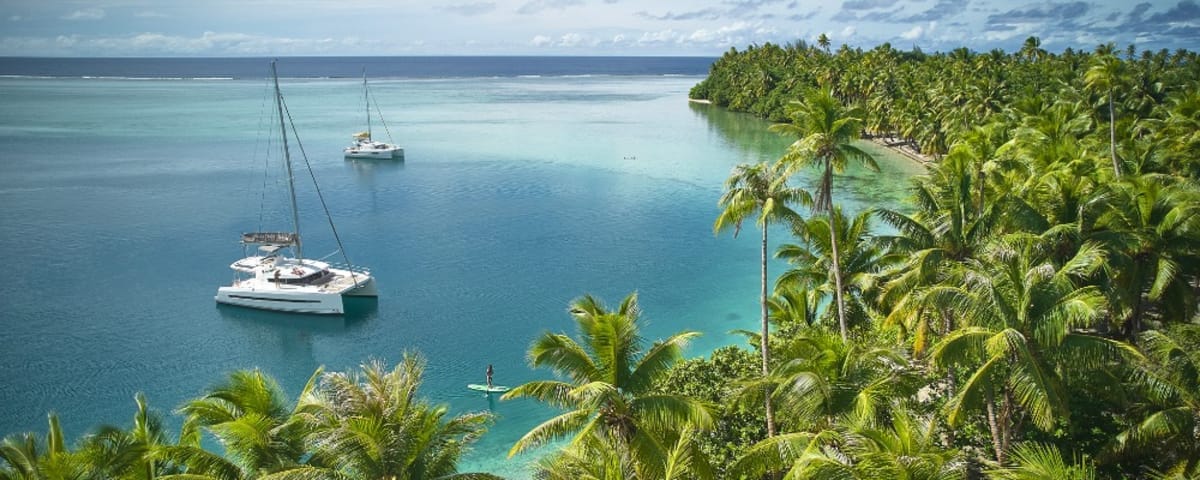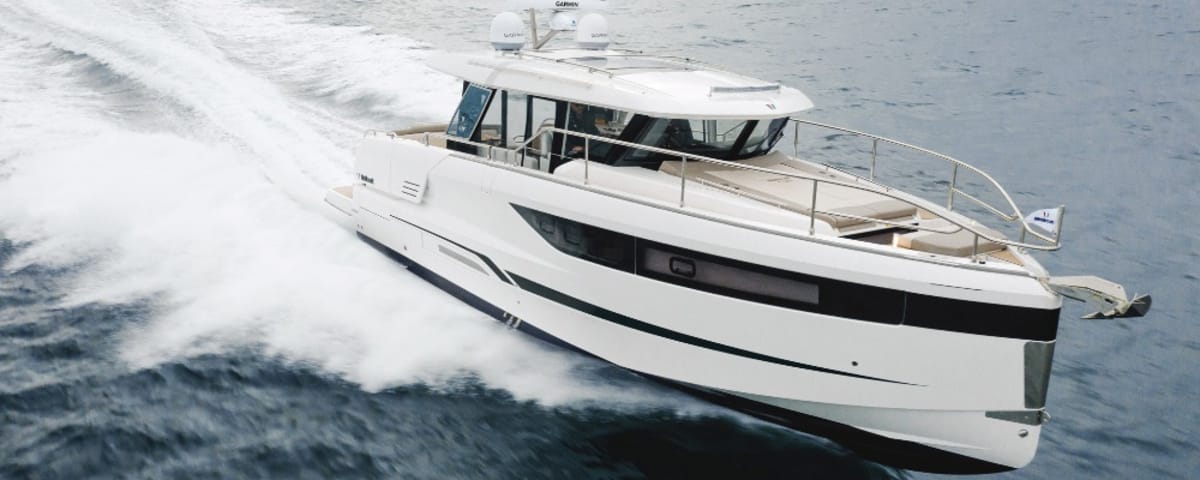Combating Heat on Your Boat
Shade and Natural Ventilation
When the temperature soars, how do you keep the inside of your boat from becoming an oven, especially at night? The key is to shade and ventilate. Sailboats have an advantage with their rigging, making it easier to block the sun’s rays. Beyond the cockpit bimini, a boom awning covering the roof, or even a shade sail protecting the bow, can reduce the temperature by 5 to 10 degrees compared to direct sunlight. If these aren’t available, cover all horizontal glass surfaces. While many polyester decks are now insulated, polycarbonate portholes can become excellent heat conductors under the sun. Sailing and creating apparent wind is the most natural way to bring fresh air to the crew. But when at anchor, choose a mooring over a marina. Natural surroundings are less of a heat source than crowded docks and concrete cities. Face into the wind, open all portholes (using wind scoops if needed), and ensure you’re not too close to other boats for better airflow.
Equipment: Reducing Heat Sources
When there’s no wind, electric fans can help circulate air. Opinions vary on their effectiveness. Some find them unattractive, noisy, made of cheap plastic, and only circulate hot air, even generating heat themselves! Others appreciate any breeze in tropical temperatures, especially at night. The temptation of air conditioning exists, but is that how you want to spend your vacation on the water? While it might be a solution in a port, it’s not ideal while sailing or at anchor. Start by turning off and unplugging all electrical devices, especially converters. Like a phone charger, electrical devices emit heat. Make it a habit to switch off devices at the main panel after use. Cooling systems also generate heat. Paradoxically, lowering the refrigerator thermostat can help. Limiting openings will reduce compressor activity and heat. Those who’ve switched from gas to induction cooking appreciate the absence of flames heating the galley during heatwaves. But do you really want to cook hot meals in this weather?
Taking Care of Yourself
Protecting yourself from direct sunlight is crucial at sea. In a temperate climate, a person loses about 2.5 liters of water daily, more if active or in hot weather. Drink enough fluids throughout the day, including while sailing. Water is essential, as beer, rosé, or rum don’t count. For cooler nights, besides slatted bed bases, replace polyester or cotton sheets with linen or hemp. They stay cool in summer because they don’t absorb body moisture and remain dry on humid nights. Finally, embrace the Spanish tradition of the siesta. Wake up early to enjoy the coolest part of the day, and spend the hottest hours in the shade reading, writing, or sleeping – without guilt.
Enjoyed this post by Thibault Helle? Subscribe for more insights and updates straight from the source.


